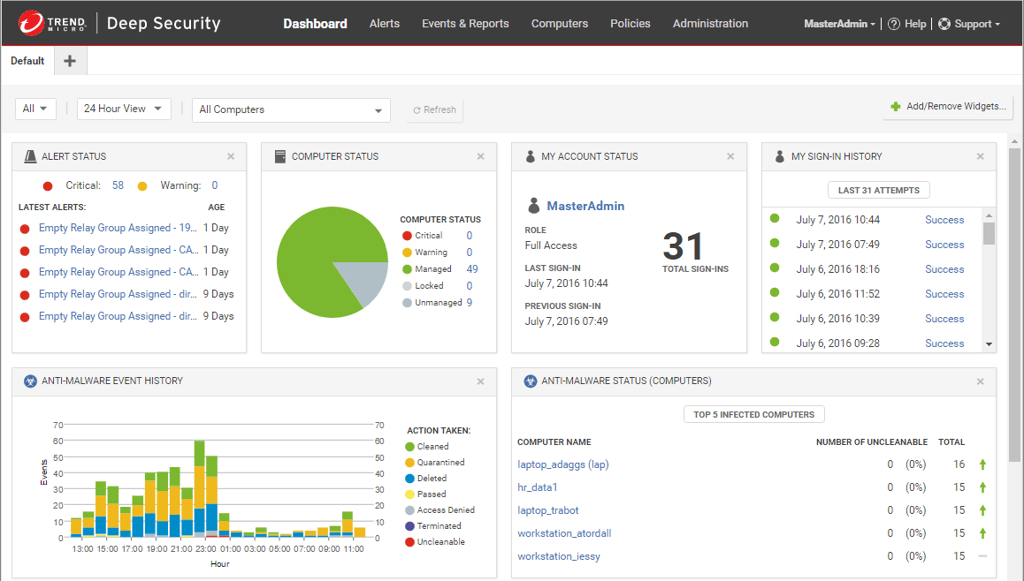
CIOs: How to Get Your Teams to the Next Level

Security should not take a backseat to any other consideration in developing technology. But it can “kill innovation before it happens” if we allow ourselves to be consumed by it.
That was one of the key messages conveyed in a recent interview with Wolfram Jost, chief technology officer at the German enterprise software giant, Software AG. I had the opportunity to speak at length with Jost at Software AG’s Innovation World conference in Las Vegas earlier this month, and I found him to be refreshingly candid and willing to share some astute insights.
The security question had been raised at an earlier press gathering, when Jost was asked to address the fact that any mention of security seemed to be conspicuous for its absence during the opening keynote presentations of Software AG’s top executives. In response, Jost indicated that innovation, not security, is the driver of Software AG’s business. I asked Jost to elaborate on that response, and he explained the point this way:
When the car was invented, you easily could have said it was an unsecure technology—we should not build cars, because people will be killed by cars, so stop it. You could say the same with airplanes—“Oh my God, this is an unsecure type of technology, because people will die! Don’t develop it!” The same with electricity. So what I’m saying is, if we always put, at the beginning of innovation, the question of security, we would still live [in the dark ages]. Because every innovation comes with security issues. If Amazon had waited until the cloud became secure, they would still be waiting today. But today they’re doing billions of dollars worth of business, even if it’s unsecure. With the iPhone, Apple has been building unsecure technology for 10 years. So I’m not saying security comes second. I’m saying you can kill all innovation with security discussions. Do we want that? I’m saying, “No.” That doesn’t mean that I’m not thinking about security. But it can kill innovation before it happens—that’s the message.
Also at an earlier press Q&A, the subject of Software AG’s strategy to partner with data science companies, rather than build or buy data science technology, arose. In that context, Giles Nelson, Software AG’s senior vice president for product strategy, made the statement, “We’re good at software; we’re not good at data science.” I asked Jost for his perspective on that statement, and he said software and data science are simply two different things:
Software is a technology to process data. Data science is about how to analyze the result of a data processing engine. That means feeding data in, doing processing, and generating results—that’s what we do. Looking at the results, and what the right decision is for a company—what can be learned from these results—we don’t have those experts, the data scientists. They are able to analyze data in a way that allows them to find new patterns. These are skills we don’t have in the company.
Given that Volkswagen is a Software AG customer, I thought it would be interesting to get Jost’s thoughts on the scandal surrounding Volkswagen’s use of software to cheat on emissions testing. He expressed the view that the blame in such cases is too often misdirected toward the technology itself:
You can use a hammer to kill somebody, or you can use it to drive a nail in the wall. If you’re the producer of the hammer, you don’t know whether they’re doing the one or the other. We are providing technology to Volkswagen for process governance—that means processes are getting defined and published, and there’s a governance of these processes. I think if you do that right, then things like what happened at Volkswagen should not happen. You have governance of who can make decisions about what, and when. But there is no way to avoid criminal energy with technology—you can’t do that at all. There are people using technology to hack your device—would you blame the technology for that, or the people who apply it? We always have to differentiate between the technology as a provider of capabilities, and the user as somebody who applies the technology to a certain use case. The use case should be one that has a positive effect on a company or a society. But there are also use cases with a negative effect. It’s the same in the U.S. with guns. The gun itself is not a bad technology—you can use it for a lot of good things. But you can also use it to kill a person. We can never avoid the fact that there is misuse of innovative technology. So whatever it was that happened at Volkswagen, it was the wrong usage of a good piece of technology. Because having software that’s able to measure [emissions] is not bad. But putting it in a car to manipulate the results is a bad usage. Some people are unable to differentiate that—they say it’s the technology that’s the problem.
Jost pointed out that Software AG’s technology, just like any other similar technology, can be used to create software that can be put to a nefarious use, and they have no control over that. I asked Jost whether Software AG’s technology might be used to help get to the bottom of the problem at Volkswagen. He said the people at Volkswagen already know where the problem lies:
I don’t believe they need help there. The question is whether they want to talk about it, and how far they want to go to make it public. I totally believe that they know how it happened and why it happened. So solving that problem is no issue at all. All you have to do is take the software out.
Finally, I asked Jost what he thinks is the single most important bit of information coming out of the Innovation World conference that you need to know about. His response:
I would say the message is that first of all, software has become the most relevant driver of innovation in the world. And second, the age of platforms is coming. Products will stay, but they are no longer the center of gravity for the future innovation of IT-based business models. This notion that platforms are taking over in the digital world, and knowing how to deal with software, becomes a key asset of every company. We want to make the term digital business platform as successful as the term ERP was 15 years ago.
A contributing writer on IT management and career topics with IT Business Edge since 2009, Don Tennant began his technology journalism career in 1990 in Hong Kong, where he served as editor of the Hong Kong edition of Computerworld. After returning to the U.S. in 2000, he became Editor in Chief of the U.S. edition of Computerworld, and later assumed the editorial directorship of Computerworld and InfoWorld. Don was presented with the 2007 Timothy White Award for Editorial Integrity by American Business Media, and he is a recipient of the Jesse H. Neal National Business Journalism Award for editorial excellence in news coverage. Follow him on Twitter @dontennant.









